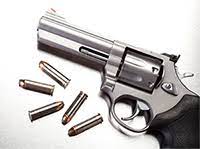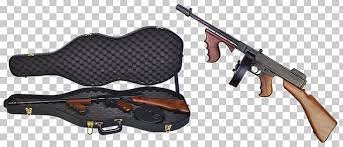The National Firearms Act (NFA) was basically unveiled in 1934 beneath Main professional Franklin D. Roosevelt’s control as being a response for the growth and development of brutal criminal offense measures fully commited with firearms. The act was carried out with the goal of regulating and manipulating the transaction, management, and change of particular firearms and add-ons regarded too dangerous for group use. Through the years, The National Firearms Act has become susceptible to several amendments and modifications to add a broader selection of firearms. On this page, we shall plunge to the basics of your respective National Firearms Act, what it really handles, and how it influences tool supervisors and merchants across the united states.
1. What is the National Firearms Act?
The national firearms act (NFA) is definitely a national rules that handles particular firearms and bonuses which is often considered to be too risky or are believed military- and regulations-enforcement degree. The act was released in 1934 as a legal guidelines targeted at curbing criminal offenses regarding utilizing particular firearms. Some of the firearms and accessories operated throughout the NFA include speedy-barreled rifles, speedy-barreled shotguns, unit firearms, hazardous items, suppressors, and then any other tools (AOWs).
2. NFA Polices
Underneath the NFA, pistol end users and stores have to pay a taxation and send an application about the Bureau of Alcoholic beverages, Cigs, Firearms, and Explosives (ATF) before they may purchase, trade or create any one of many aforesaid firearms and accessories registered from your NFA. NFA taxation are gathered throughout the National Firearms Act Stamp (NFA Stamp), which people must get connected to the applying develop form well before publishing it for the ATF. Men and women should also go through backdrop document checks and deliver fingerprints included in the software approach. With one of these regulations, the NFA aspires to maintain tabs on who offers firearms and add-ons that current a significant danger to public protection.
3. NFA Exemptions
Its not all firearms and extras belong to the legislation from the National Firearms Act. As one example, firearms which can be typically useful for putting on reasons, including shotguns, rifles, and handguns, usually do not demand an NFA stamp or tax before acquire or change. In addition, collectible firearms (made well before 1898) and firearms manufactured for army use are also exempt within the NFA legal guidelines.
4. NFA Effect on Firearm End users and Vendors
The National Firearms Act directly has an impact on tool users and merchants by regulating the transaction, ownership, and move of specific firearms and accessories thought to be too hazardous for wide open community use. Before receiving any handgun accredited in the NFA, the patient must submit an application form (ATF Sort 4), spend a taxes, proceed through fingerprinting, and move forward via a comprehensive backdrop look at. Weapon retailers also need to practical experience thorough National Firearms Qualification (FFL) research and abide by all united states government and status regulations to get qualified to market NFA-accredited firearms and additional features.
In A Nutshell:
To sum it up, The National Firearms Act is in reality a government legislation that aims to manage and manage the marketing, ownership, and transfer of a number of firearms and add-ons considered too harmful for available general public use. To achieve this, the NFA needs tool users and vendors to spread an application develop (ATF Develop 4), pay out a taxation, go through fingerprinting, and continue through an extensive track record analyze. Whilst the NFA has confronted some critique over time, it provides proved to be an effective control in curbing the development of violent offences related to firearms by regulating the transaction, thing, and relocate of firearms and parts that induce a vital chance to community safety.

